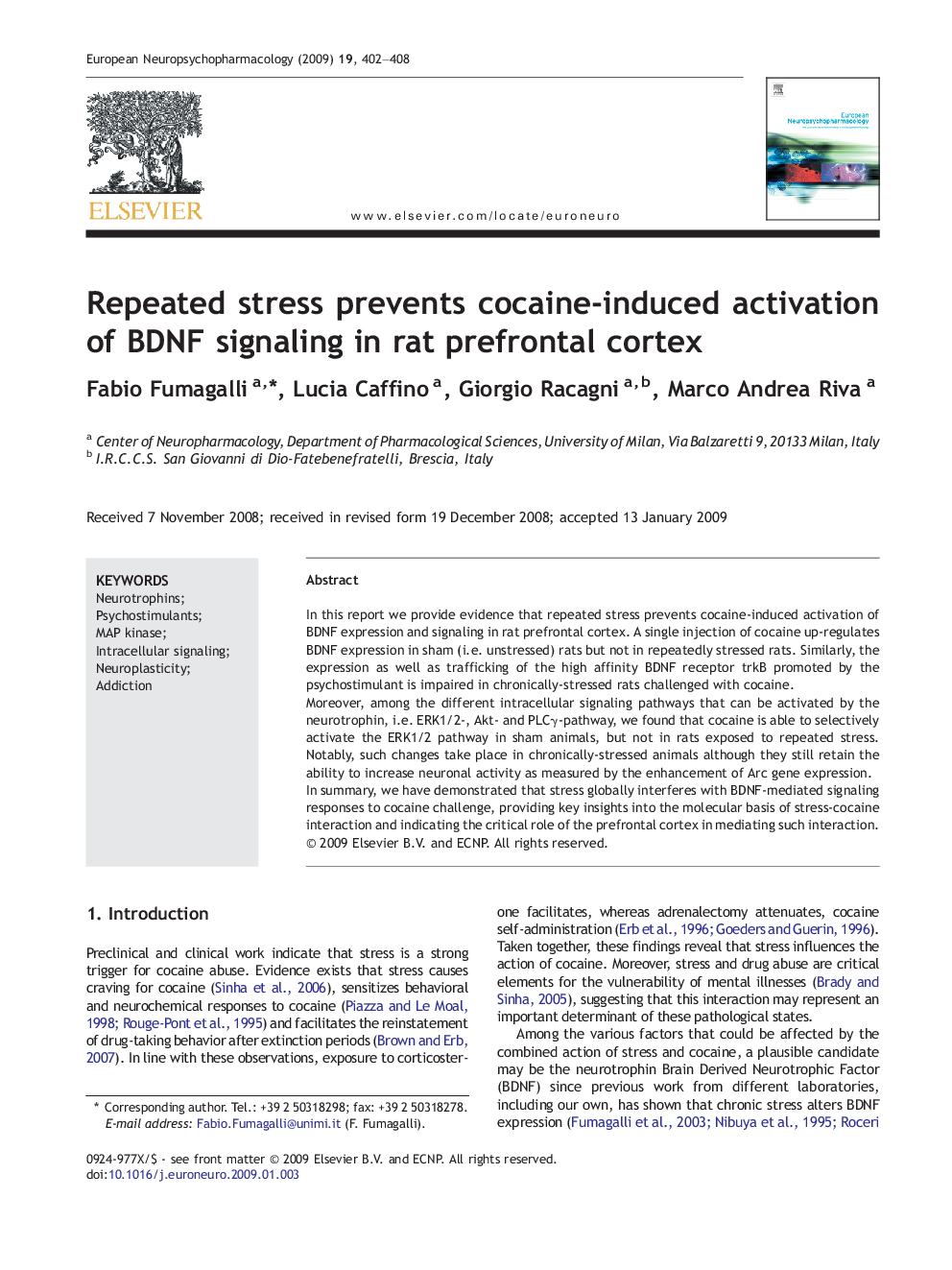| Article ID | Journal | Published Year | Pages | File Type |
|---|---|---|---|---|
| 321935 | European Neuropsychopharmacology | 2009 | 7 Pages |
In this report we provide evidence that repeated stress prevents cocaine-induced activation of BDNF expression and signaling in rat prefrontal cortex. A single injection of cocaine up-regulates BDNF expression in sham (i.e. unstressed) rats but not in repeatedly stressed rats. Similarly, the expression as well as trafficking of the high affinity BDNF receptor trkB promoted by the psychostimulant is impaired in chronically-stressed rats challenged with cocaine.Moreover, among the different intracellular signaling pathways that can be activated by the neurotrophin, i.e. ERK1/2-, Akt- and PLCγ-pathway, we found that cocaine is able to selectively activate the ERK1/2 pathway in sham animals, but not in rats exposed to repeated stress. Notably, such changes take place in chronically-stressed animals although they still retain the ability to increase neuronal activity as measured by the enhancement of Arc gene expression.In summary, we have demonstrated that stress globally interferes with BDNF-mediated signaling responses to cocaine challenge, providing key insights into the molecular basis of stress-cocaine interaction and indicating the critical role of the prefrontal cortex in mediating such interaction.
